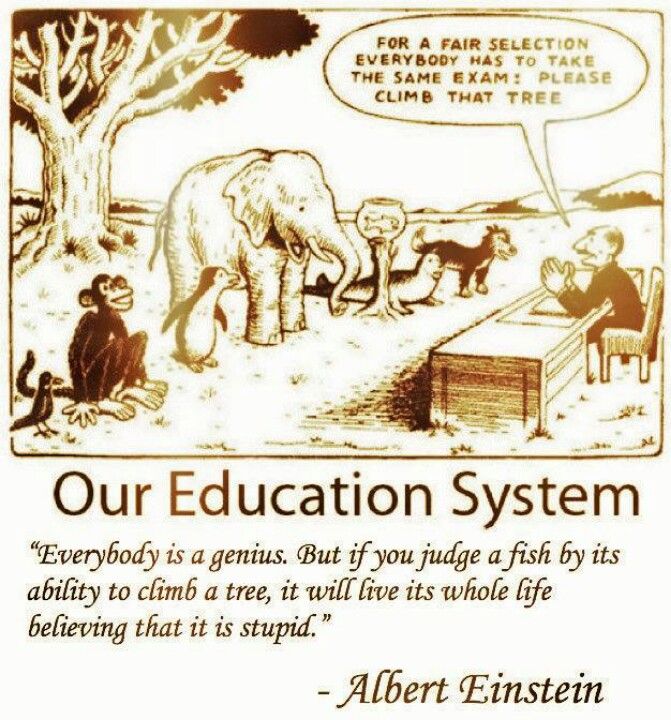When I first set out to build my own business and brand in May of 2013, I knew that there would be a LOT of things I would need to learn about business structures, and web development, before I could even think of taking on a client. Fast forward to October 2015, after an LLC incorporation and a few successful pet projects under my belt, and I decided that it was about time that I tried my hand at a legitimate project whose success (or failure) would come with some substantial consequence. This isn’t to say that I felt as though I was done with educating myself on the nitty-gritty of operating my business, but as I’ve told, and been told by people in the know, Matters of this nature are a log like launching a ship out to sea: There’s only but so much planning and preparation you can do before you reach of point of having to head out and believing that you did all that you could have done beforehand, and having faith that you will be able to handle what comes ahead.
As fate would have it, I happened to have a friend, and fellow entrepreneur, who was launching his own business as a Medical Biller and Coder. We has talked on-and-off about getting together and building his site, but up until that point, it has just seemed like some vague concept of an idea that neither of us had taken too seriously. I brought that to end by contacting him and saying that we should get together, sit down, and just really make a project out of this and put ourselves into it as best we could.
Fast forward a bit more to this past March 2015, and his own site-ship (if you will), Medbill-Compliance.com, is up and running;
Looking back on all that transpired in the months between, I’m overall pleased with the project and how it turned out. However, being that it was my first, it did turn out to be a rather grueling, time-consuming, and at times depressing an defeating ordeal that often left me and my “Client” put-off, put-away, and down. In the final weeks of development, I promised myself that when it was all over, I would give myself a break from my own business operations altogether to just focus a bit on my still-present day job, and then look back at it all and try to take some lessons from it to better the next project.
So without further adieu or introduction, here are the top five takeaways I’ve gleaned from this inaugural Perkitech website project (in no particular order):
A Project May Never Really “End”
There’s an old programming joke that goes along the lines of…
“Programming is like sex: one mistake and you have to support it for the rest of your life.’
– Michael Sins
The best humor to be found usually has a ring of truth to it. In the case of designing and developing websites, even after making good on all of the deliverables, getting every page just right, and making sure all of the specific functionalities work well by themselves and each other, a site that is “just perfect” today, can very well become problematic, buggy, or just need some tweaking in a few short months. Holes can be found in code which can lead to exploits, services can go belly up, or clients can simply change their minds about things that they we’re previously dead set on. As the person primarily responsible for a site’s build, if not exclusively, this means that these requests will be brought to you first. This is normal, understandable, and can work in your favor.
First, you want to go into each project with a very strong and detailed contract that outlines
- What work is expected, over what time period, and for what compensation
- Exactly which parties are responsible for providing what materials for the project
- When the project is expected to be complete
- What warranty period is offered on the work
The last point is particularly important, because that’s the one that basically says that websites cannot be reasonably expected to just work indefinitely and that the client will have a very limited amount of time to approach you with request for changes, tweaks, and the like without incurring any extra fees. After this period, if there is something they need changed or would like to have changed, the response should be something along the lines of: “I would be more than happy to assist, however, this request must be treated as a separate job and billed accordingly.
If you would like some deeper ideals on what an ideal contract should look like, I highly suggest you check out the open-source Contract Killer by Stuff & Nonsense that I base my contracts off of.
Consistent Work is Not Necessary, but Consistent Reporting Is
If you’re anything like me, one of the reasons that freelancing or entrepreneurship spoke to you was because it would give you far more flexibility in when you do whatever you do. All but a few rare vestiges of the modern world operate on a Monday thru Friday, 9a to 5p schedule. This schedule is not ideal for anyone and the few who struggle with conforming to it are seem as somehow deficient such as the case is with the modern education system as again clarified by the joke below:
As an entrepreneur, you will have more of a say in when you actually sit down to do you work, but at the same time, you should keep in mind that you will be often doing business with individuals and organizations who live and die by schedules. What this means is that at the very least, there should be an agreement to at least some regular meeting or report call where you can tell your clients where you are at and they can tell you where they are in relations to the project as a whole. Even if the conversation is something along the lines of: “Ive had a really bad week, and I wasn’t able to move forward on the project.”, most (but not all) people will at least be somewhat understanding and appreciate being kept in the proverbial loop.
On the other side of the coin, you could have a situation where your perfectly on schedule with what you we’re told you needed to do, but then a client says: “I know I asked for this, but now im thinking I may want that”. Regular check-in will catch these discrepancies early and prevent the need for any extended backtracking later.
As a final point on scheduling: You should try to set a consistent schedule for yourself, and mold it around what is most ideal for you (Maybe you do your best work between 11p and 3a, or just like doing one-day, eight hour, jam sessions on Saturday or Sunday), but treat as something more of a guideline than a rigid unbend-able fact. Remember: At the end of the day, your “Boss” is the man/woman in the mirror. If you don’t think that person is flexible and understanding enough to work with your schedule, there’s a deeper problem you should discuss with someone sooner before later.
Creativity and Consistency are not necessarily mutually exclusive
As a web developer, or any kind of creative, you’d likely find yourself out of work in very short order if your portfolio consisted of jobs that look like they’re somehow photocopies of one another. The creativity that goes into each individual piece you do is likely not something that can be turned into a factory line, but that doesn’t mean that there can’t be some method to the madness of your creations.
Currently, I’ve been working with WordPress to build my sites. One of the thoughts I had early on in my project was that, regardless of what any site I may build on the platform may look like on the front end, on the backend there are a handful of plugins that will just HAVE TO BE present, without fail, before I would be comfortable handing the site off to anyone for their own use. Some of them are;
- WordPress All-In-One Security (Site Security) – https://wordpress.org/support/plugin/all-in-one-wp-security-and-firewall
- WordFence (Firewall and Malware Scanning) – https://wordpress.org/plugins/wordfence
- UpdraftPlus (Site Backups) – https://wordpress.org/plugins/updraftplus
- Yoast SEO (Site SEO Management) – https://wordpress.org/plugins/wordpress-seo
Also, as mentioned in the previous section, if there is a specific (or somewhat specific) time/place/condition in which your creative juices get flowing (Perhaps Friday night, behind your garage, after your third hit on a bong while listening to The Grateful Dead #NotJudgingYou), then you may want to consider blocking out some time on a weekly basis to go through this process with the understanding that perhaps not every session will leave you with an “AHA!” or “EUREKA!” moment.
Educating clients saves time and energy for all
My client was very particular about the perception of his own brand and how it would be perceived when it was being shown. One of the very first thing that was setup for his page was a plugin that would generate a ‘Coming Soon’ or ‘Under Construction’ page, depending on the circumstance, whenever the site was not supposed to be “live”. Over the course of the project, Ive received more than a handful of panicked phone calls asking me to check to ensure that his site was truly down when it should have been when there we’re occasions when this wasn’t entirely clear. For me, these calls almost always came at inopportune moment and what made them more stressful was that I essentially had to stop and help the client confirm that his site was down in order to calm him down and send him back on his way.
I finally found the foresight to mitigate this problem by typing up an instructional of sorts with a simple flowchart that the client could follow on how to check the visibility of his site for himself and how to manage it. I presented it to him, we went through it a couple of times together and then it was explained to him, in polite but firm terms, that any future calls concerning misunderstandings about the visibility of his site and its management, that did not involve some outright fault or breakage of the plugin itself, would be met with a separated, billable fee….
…I didn’t receive any more calls from the client about the visibility of his site or the steps involving its management 🙂 .
Deep down, nobody truly believes that they can “Do it all” on their own and by themselves. At the same time, nobody wants to feel particularly dependent on anyone else. When you see opportunities to show clients, or people in general, how to help themselves, you shouldn’t shy away from taking them. it shows that you’re about empowering them and ,ironically, it makes them feel more comfortable in coming to you with future problems (i.e., future work 😉 )
Documentation is King
In any project, there is a lot of information that can be thrown around: Page drafts, hosting site passwords, meeting minutes, date changes, payment changes and the like. Unless you’ve ever held your own at a World Memory Competition, or know someone who has and have trained under them, its likely that your own memory isn’t exactly “Photographic”. Even if it is, its even more unlikely that your client’s will be. People forget things and when disagreements arise regarding past made facts or statements, there will be a tendency for individuals to “remember” only those things that will best serve their interests. This isn’t necessarily “Good” or “Bad”, but rather just human nature. I myself have been guilty of nothing less.
When it comes to your own projects, its good to get as much down on paper or record as possible and to be able to easily access those records. If you need to go back over something that was previously said, it will be easier for you, and in a rather quiet manner, make you look more professional, if you can just refer to your own archive than have to reach out to a client and have them repeat themselves. It an extra feeling of “Win” when you can forward back to someone an message or file they need to see but lost or misplaces themselves. Also, if there is ever a disagreement or misunderstand over something that was spoken or written, you will have hard documents to point back to that will provide quick and easy clarification to such matters.
One of the simplest things you can do in this respect is to create a new folder in your email account for specific project emails and to move every message sent to or received from a client into that folder. That way, you can still have them to reference without needing to leave them sitting in your inbox.
As far as voiced conversations: I currently use Skype to call clients or contacts. There is a third-party program called Amolto Call Recorder for Skype that runs quietly in the background and will automatically begin to record any and all calls received or made through the system. As an added bonus, if you’d like it to do so, the program will prefix all calls with a short message telling the recipient that the call is being recorded. Going as far as Android mobile devices, my choice of app is Call Recorder. This essentially does the same thing as Amolto Call Recorder does, but on my cell phone. For those of you who use iOS devices, I cannot offer any advice as I don’t use iPhones but if you do have any recommendations to offer, feel free to leave them in the comments below.
In my own research on the matter, I’ve learned that most courts will only recognize a recipients objection to being recorded after receiving such a message, by their immediate termination of the call. It won’t be enough for them to say: “I object to being recorded”, but then continue to speak with you. That being said, I am not a lawyer myself, and you should refer to one to get more specific and proper information on this matter.
Conclusion (or the “TL;DR” section)
To wrap up, and briefly reiterate the points made above:
- Make sure you and your client are clear on what work is to be done, by whom, and when
- …and have all of it laid out in a contract
- Check in with your client(s) on a regular basis
- Set schedules for yourself, but treat them more as flexible guidelines than rigid rules
- Empower your clients to do the small stuff so they will only sweat you with the big stuff
- Keep records of as much as you can
- Calls, Emails, Meeting Minutes, Etc.
Regardless of how you made it down to this part, thanks for reading. I hope this helps you in some way. Comments and questions are welcomes.









